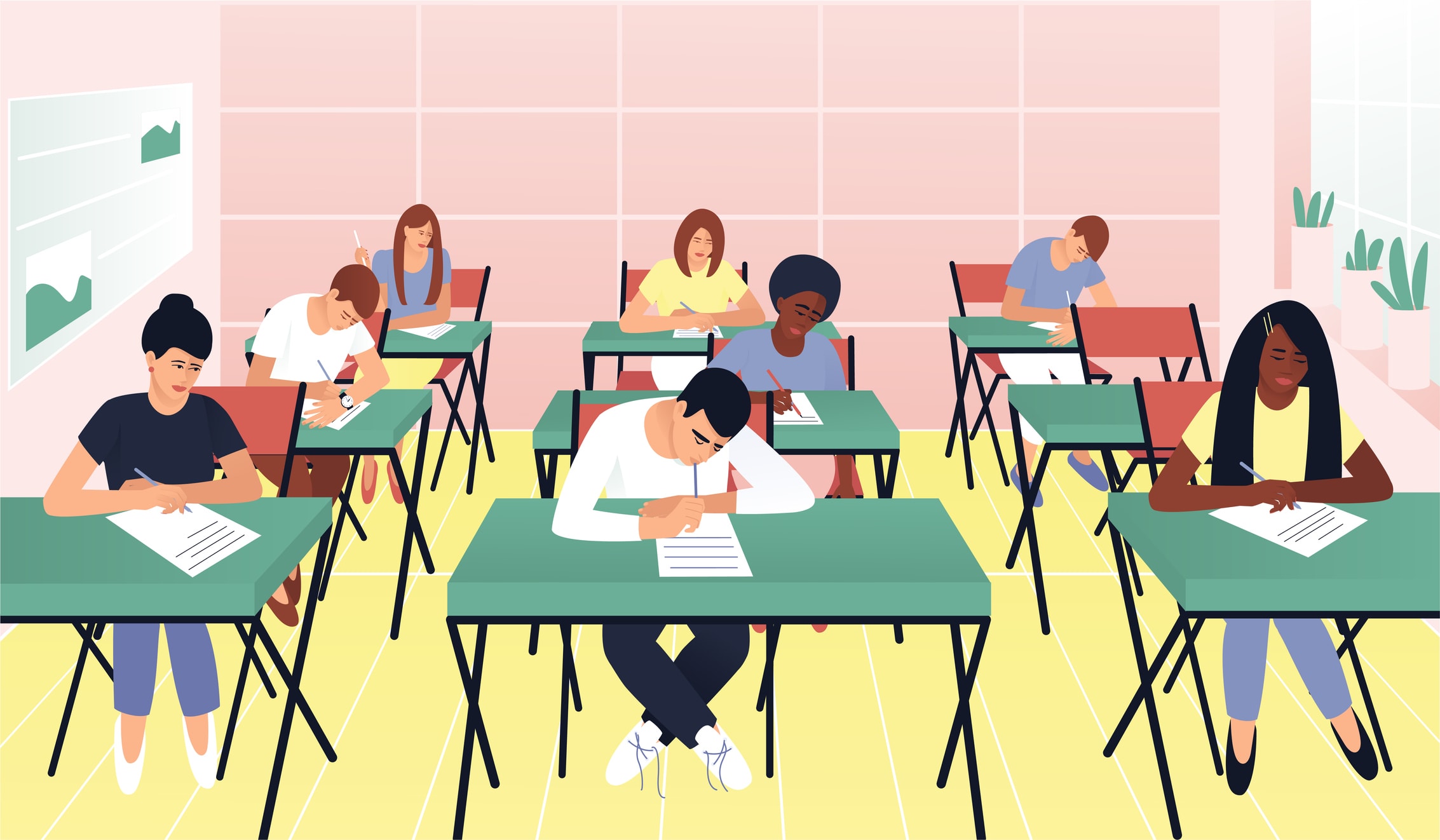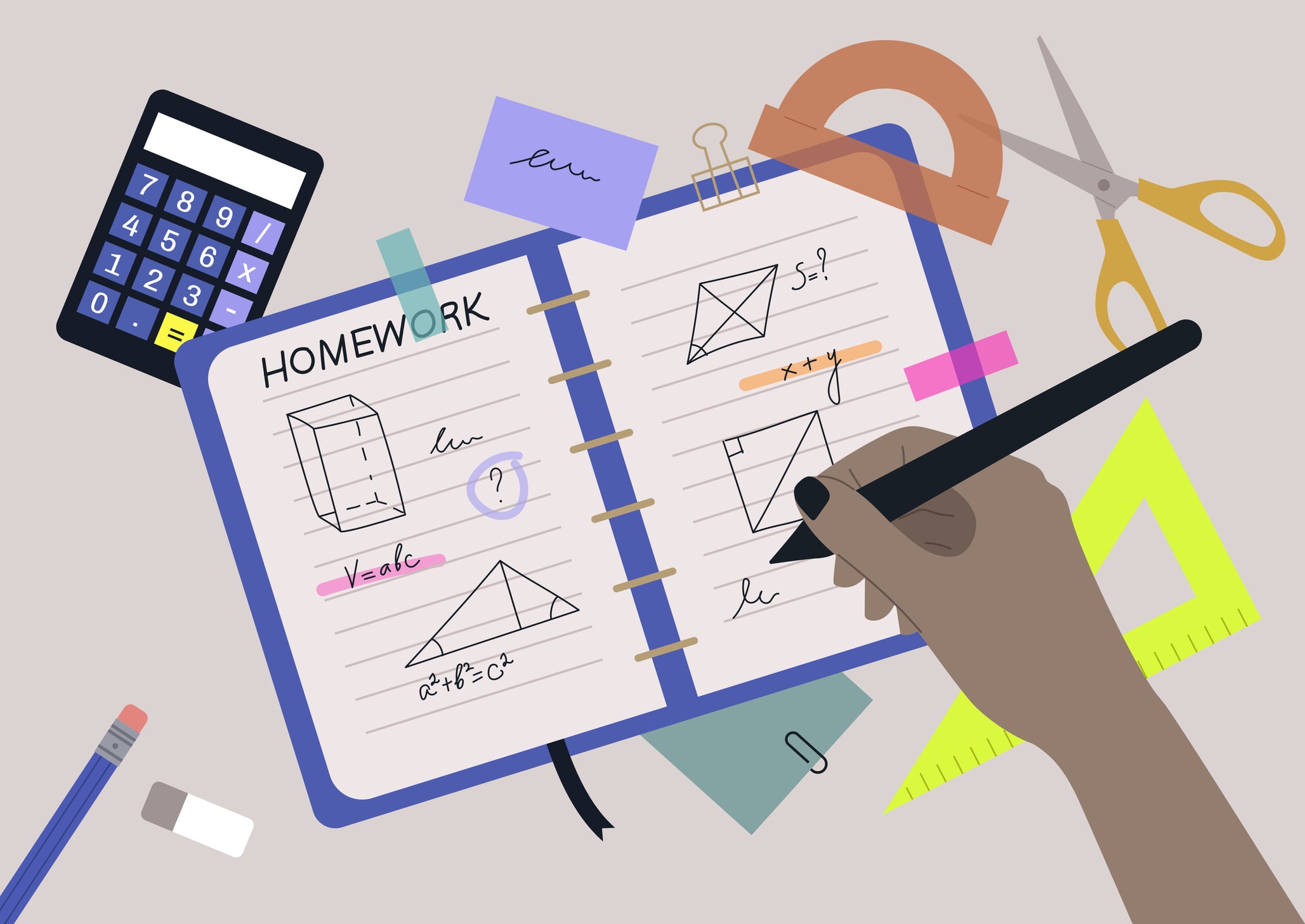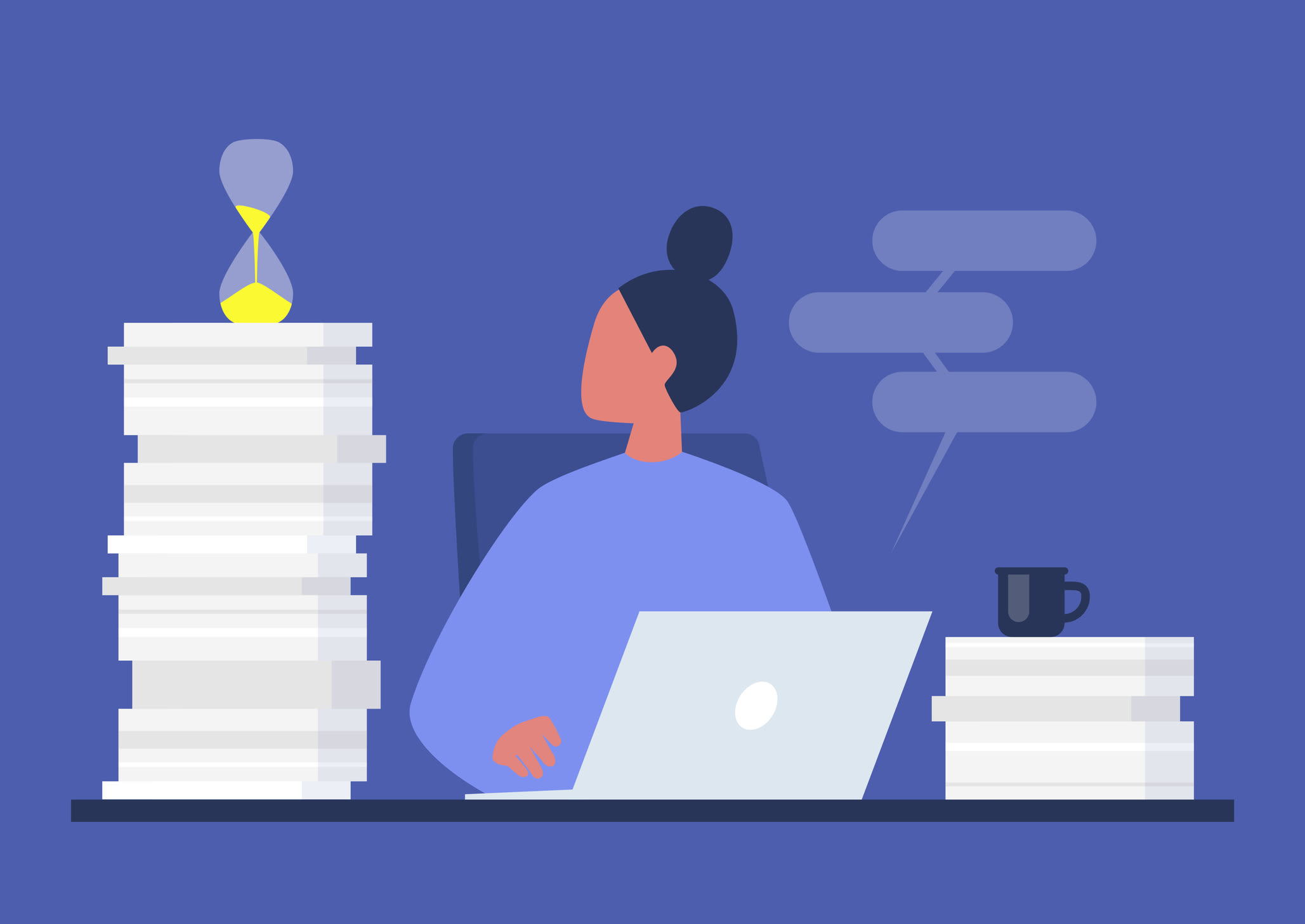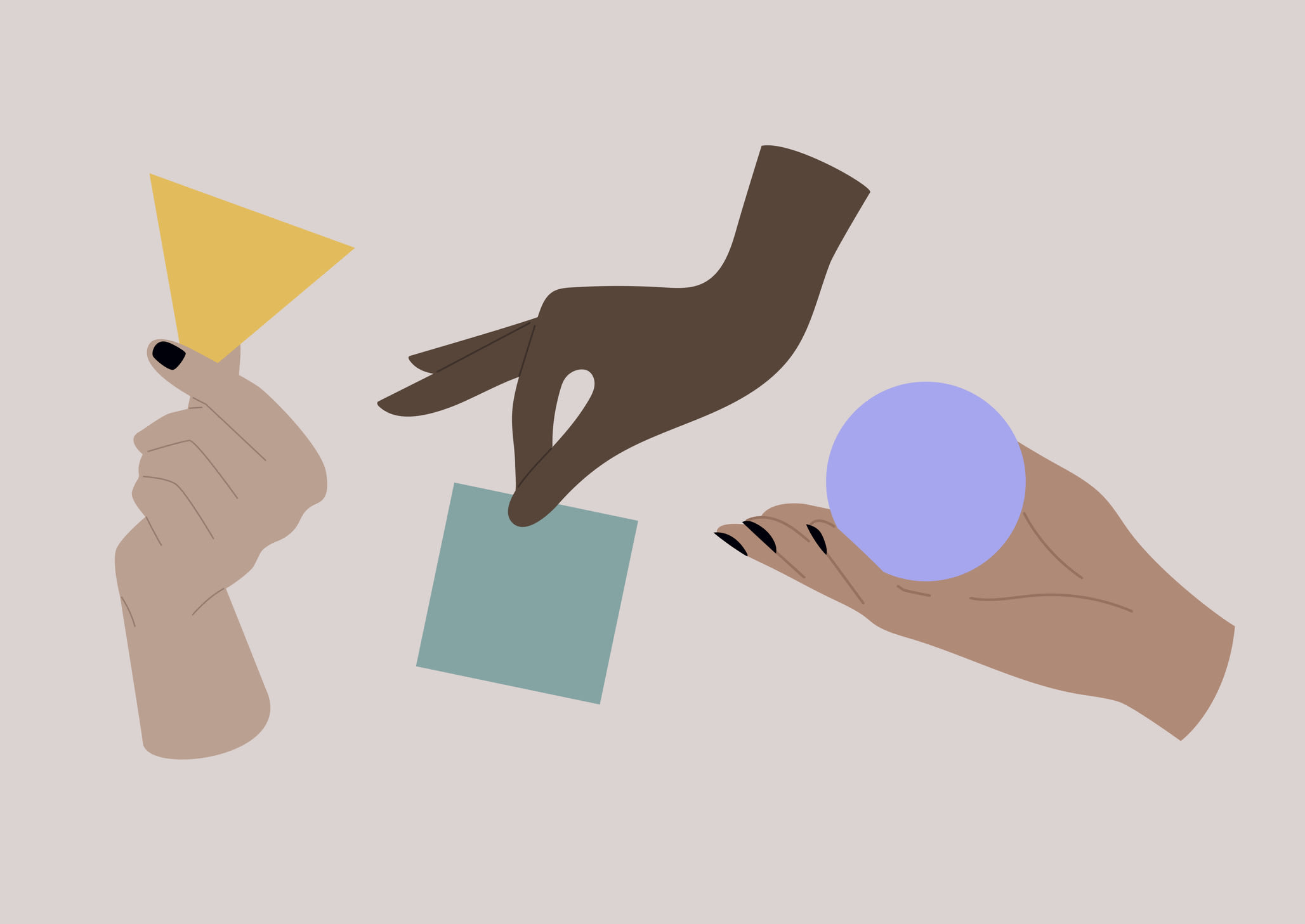Study Guide: How to study for finals?
Our how to study for finals guide provides healthy habits to prepare you for sitting your exams.


How to study for finals: Check in with your mental wellbeing
Finals can be a stressful time for you, especially if you feel unprepared. You may be anxious about needing more time to cover all the topics or worried that you won't perform well. It's important to recognize these feelings and take time to relax. Consider talking to a professor or mentor, visiting an on-campus resource center, or practicing mindfulness techniques. Take deep breaths, meditate, or practice yoga for a few minutes each day. This will help make sure your mind is clear when it comes time to study.
Now that you have the right frame of mind, let's jump into our study guide! There are a few key steps you can take to prepare yourself for finals:

How to study for finals: Organize your study materials/notes
Once you have identified and found a way to manage the emotions associated with final exams, it's time to ask yourself: How much material needs to be covered for each exam? How do I organize all of these study materials? To answer these questions, we will focus on notes and flashcards.
How to take notes and make flashcards
A study note summarizes the class material that helps you track what you need to know for your exams. It entails categorizing class notes into subject headings, taking out unnecessary information, and writing down key concepts with definitions and examples. On the other hand, flashcards are a helpful tool for memorizing facts, terms, and concepts. They help by providing repetitive exposure to the material, allowing topics to become more deeply ingrained in your memory.
When creating your study notes, it is important to focus on the essential points from each topic. Include diagrams and other visuals to help you remember key ideas. When making flashcards, be sure to include both questions and answers. This will help you test yourself quickly and efficiently.
Studying your notes and flashcards
Finding the right way to study your notes and flashcards is also essential. Spaced repetition can be an effective tool for studying. This means reviewing material multiple times with breaks between each session. Use timed sessions to focus on one topic at a time, or create different batches of cards and spread them out over a few days.
Finally, remember to stay organized! Ensure all your notes and flashcards are stored in one place to locate them quickly when studying.

How to study for finals: Plan your time
Ideally, students should start studying for finals a few weeks in advance. This gives you enough time to review the material and not feel overwhelmed. However, if you are approaching finals week without starting yet, don't panic! We have advice to help those studying in advance and those who need to cram.
Set up a revision timetable
First and foremost, you will need to plan your time. How much time do you have before the exam? How much material do you need to cover? How many hours can you realistically study each day?
Once you have answered these questions, you can set up a revision timetable. This timetable focuses on the topics you are most familiar with, and the days you plan to work on each one, helping you develop a sense of structure and tackle the material in more manageable chunks.
You can start by making a list of all topics that need to be studied, then divide them into manageable chunks. For example, if you have four weeks before your exam, break the material down into four sections—one for each week. Remember to set realistic goals to avoid feeling overwhelmed and burning yourself out.
Next, plan how much time you will need to spend on each topic. Think about which topics you are more comfortable with and allocate more time to those that require more review.
Finally, tell someone about your revision timetable. Sharing your goals will help hold you accountable and ensure the work gets done on time.
Stick to the timetable
Now that you have your revision timetable, it is time to stick to it. This will be easier if you create a positive environment for yourself with no distractions like phones or television. This can be anywhere that is quiet and where you feel comfortable working. Some people prefer to study in their bedroom, others in the library or at a coffee shop. Find a place that works for you where you can focus and spend the necessary time.
Procrastination is your enemy, so try to avoid it as much as possible. If you struggle with it, consider returning to your timetable and reworking it, dividing it into smaller chunks. This will make the timetable seem more achievable and allow you to take frequent breaks throughout the day.
It is also important to reward yourself when milestones on your revision timetable are met. Just remember the ultimate goal is studying effectively, not just quickly.

How to study for finals: Study tools
Study tools and resources can be useful for studying, and how you use them will depend on your learning style. These tools can help you commit critical facts to memory and make studying easier. So have fun and find which ones work best for you
Study tool for language learning: Duolingo
Duolingo is an excellent tool for those studying languages. This free language-learning platform has interactive lessons and exercises to help you practice vocabulary, pronunciation, grammar, and more. With Duolingo, you can track your progress and earn points as you learn! It is beneficial if you need to cover a lot of ground quickly. Making the most of your study sessions using Duolingo helps you succeed in mastering a language before finals.
Study tools to create study guides: Study Blue, GoConqr, & Quizlet
Study Blue, GoConqr, and Quizlet are tools you can use to make digital or paper-based flashcards and quizzes which are great ways to help you remember facts, definitions, and formulas for math and science topics before the exam. Plus, you can create your own study guide to keep track of all the information you have learned and review it multiple times in preparation for the exam.
Study tool for organization: Trello
Trello is an easy-to-use tool for organization that allows you to track your progress and set goals. You can create separate boards for different topics, add notes, and attach documents within one platform. Trello has a calendar feature so you can stay on top of essential deadlines before the exam.
Study tool for Notetaking: Evernote
Evernote is a powerful tool for note-taking and document management. You can easily add notes, highlight important passages, attach documents or images, and share files with classmates. This way, you can quickly access all the information you need in one place - from lecture notes to online articles - whenever you need it!
Study tools to learn-for-free: Khan Academy & Udemy
Khan Academy and Udemy are great online resources to learn for free. Both have a library of content that can be accessed anytime, making them perfect for last-minute cramming sessions before the exams. Khan Academy is great if you need help with mathematical concepts. At the same time, Udemy offers courses in a range of topics such as business, design, and development.
Study tool for essays: Grammarly
Grammarly is a great tool to help you check and proofread your essays. This writing assistant will detect grammar, punctuation, and spelling errors and offer suggestions on improving the clarity of your text. Plus, it can offer synonyms to make sure your essay stands out.

How to study for finals: Study Groups
Consider forming or joining a study group. Working with other students can help you review material and also allow you to discuss complex concepts. It can be helpful to hear how others are studying for the exam and to share tips and resources.
How to find a study group?
- Ask your peers: Talk to classmates also taking the subject and see if they'd be interested in forming a study group.
- Check for existing groups: See if there are any existing study groups or join one online, such as on Reddit, Facebook or Instagram.
- Take initiative: Reach out to your classmates or create your own study group online and invite people to join.
- Utilize resources: Ask your professor if they have any existing study groups or if they know of any online study groups you can join.
How to maximize the use of a study group to study for finals?
- Have clear goals: Set an agenda before each meeting and decide which topics you'd like to cover.
- Divide tasks: Assign roles such as discussion leader, note taker, or facilitator so everyone contributes to the group.
- Utilize resources: Share the resources you have found with the study group to help everyone prepare for the exam.
- Practice questions and have discussions: Ask each other questions about the topics you are studying and work together to answer them.
- Stay organized: Create a spreadsheet or document where everyone can update their progress and achievements so you know who needs extra help.
- Take breaks: Remember to take regular intervals during the study sessions so everyone can stay focused and alert.

How to study for finals: Aiming for a balanced approach.
It's important to find a balance between studying and taking breaks and between academic work and your social life. It can be tempting to focus all your time and energy on learning, but it's essential to make time for other things. Make sure to schedule time for friends, family, and your hobbies.
Take breaks/ Give yourself time to relax
Studying for long periods can be draining, both mentally and physically. It is essential to take breaks every so often to stay fresh. Taking a walk, listening to music, or reading for pleasure are all great ways to take a break and relax. Just make sure to take only a short break, or you'll lose your focus.
Get enough sleep/Avoid all-nighters
It is also essential to get enough sleep when studying for finals. Getting enough rest will help you retain information and be more alert when studying. Avoid pulling all-nighters, as this will likely lead to fatigue and decreased productivity.
Stay fueled up with healthy food
Eating healthy is also crucial when studying for finals. Eating regular, nutritious meals will help you stay focused and give you the energy to learn. On the other hand, eating junk food will make you feel sluggish and can decrease productivity.
Drink plenty of water
Drinking plenty of water is also important. Staying hydrated will help you focus and avoid headaches. Drinking caffeinated beverages can also help, but be careful not to overdo them, or you will feel jittery and anxious.
These tips can help you stay healthy and focused while studying for finals. With some preparation, you'll be on your way to acing those exams in no time! Good luck!
Take a look at our advice on unusual ways to study for exams.

Keystone Team
Author
The Keystone Team is comprised of experienced educators and advisors dedicated to providing valuable resources and advice to students all over the world.